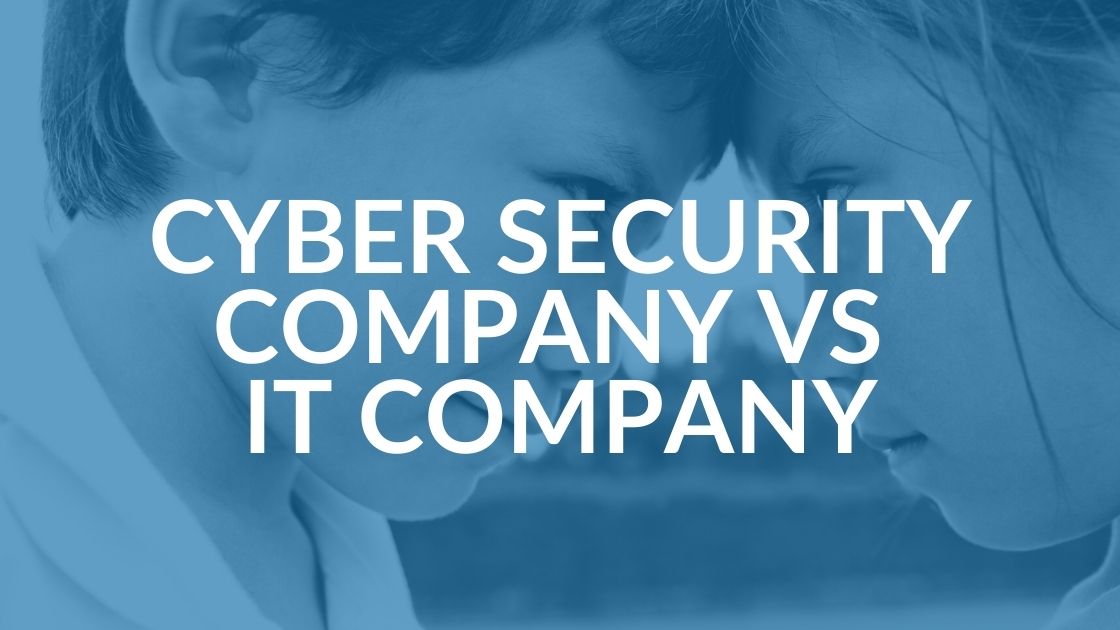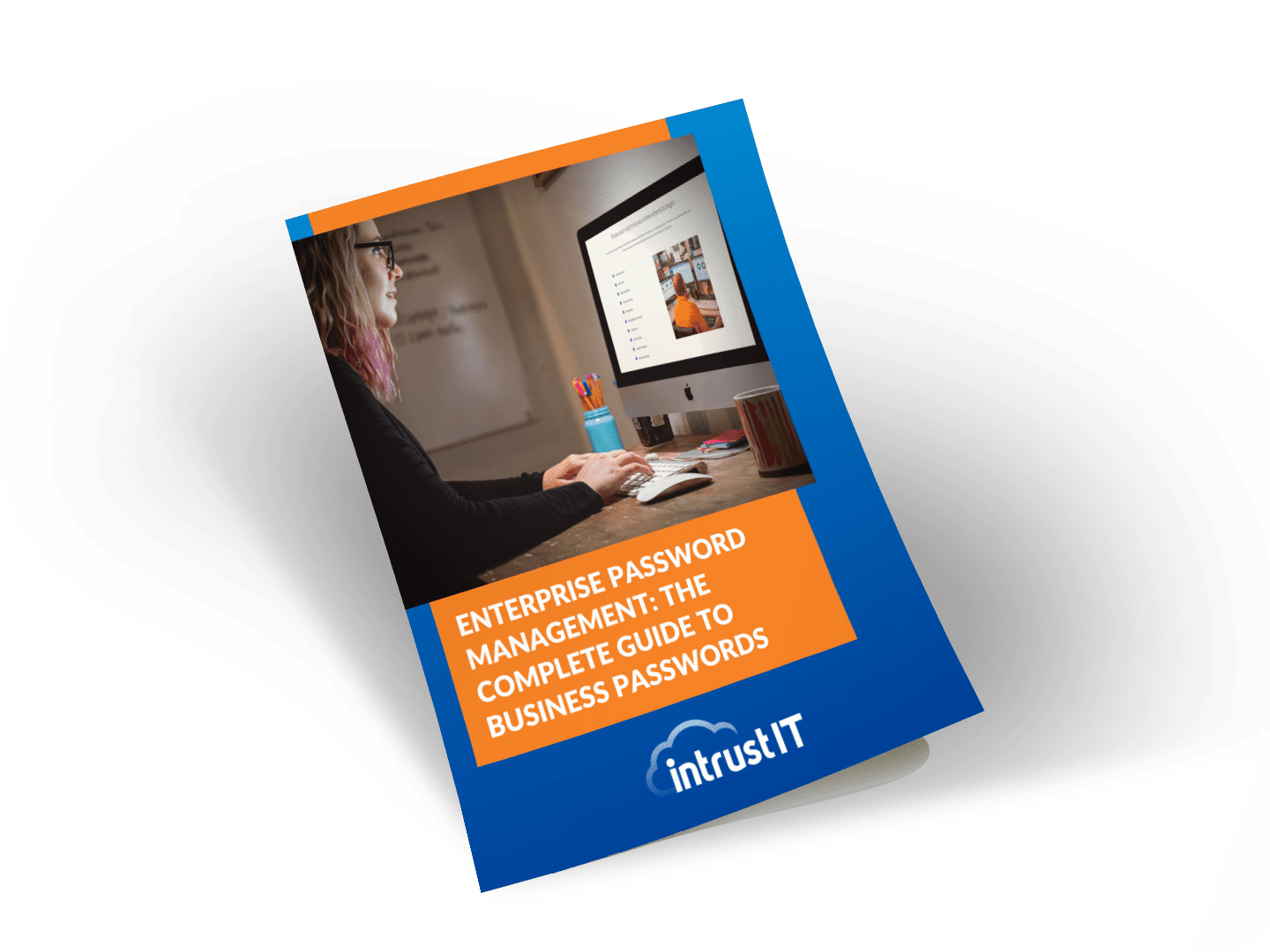Cyber Security Company or IT Services Company: Which Best Protects Your Business?

Cyber security can be confusing and it’s difficult to know where to turn for help. There are many companies, software and tools available that claim to have the answer. As a business owner, you need expert help. Cyber security businesses tend to fall into two main categories: cyber security companies and IT services companies including managed service providers (MSPs). But how do you choose?
The first thing you need to recognize is that achieving cyber security for your business is far more than testing for vulnerabilities or installing software. True cyber security can only come from end-to-end technology monitoring and management.
Cyber Security Companies Provide Security in a Vacuum
Cyber security is one part of the larger information technology umbrella. A cyber security company offers IT security without the larger suite of IT support and infrastructure of a managed service provider (MSP).
A cyber security firm uses software and can run audits and system tests to tell you what you need to change to improve your security. This can be a valuable tool for some businesses; it’s like using an accountant to go over your books rather than an internal auditor.
The downside is that those scans and analysis are only for that moment in time and cyber security vulnerabilities change often and quickly.
When you work with an IT services company, you can leverage many of the same software and testing solutions as you need them. But, it’s delivered within the context of comprehensive infrastructure management that includes 24/7/365 monitoring and staff training.
End-to-End Security With a Managed Service Provider
Cyber security falls under the umbrella of IT services. Managed service providers like Intrust include cyber security as part of their comprehensive IT services. This usually includes periodic audits and reports, but it also encompasses the much-needed support to make changes based on what is learned. Here’s a quick breakdown.
| Cyber Security Company | IT Services Company | |
|---|---|---|
| Assessments: Audits, risk analysis and gap assessments that identify vulnerabilities | ✅ | ✅ |
| Infrastructure protection: Patch vulnerabilities; recommend and implement specific security and productivity improvements | ✅ | |
| 24x7x365 monitoring: Vigilant monitoring of your systems and support for your team when tech problems arise | ✅ | |
| Employee training: Education for everyone in your company including management and the rest of your team on how to stay secure and avoid falling victim to cyber crime | ✅ |
The First Step: Recognizing the Risk
Realizing that there is a risk of a cyber breach is a crucial first step for any business, regardless of size and industry. The pace of attacks was on the rise before the pandemic, but has been skyrocketing since. Attacks are not just on large corporations such as Microsoft or big targets like the Colonial Pipeline. Small businesses are in the crosshairs too, partly because so many are not making cyber security a priority.
Research conducted by the National Cyber Security Alliance found that:
- More than 70 percent of all cyber attacks target small and medium-size businesses.
- Almost 50 percent of small businesses have experienced a cyber attack.
- About 60 percent of hacked small and medium-sized businesses go out of business within six months after these attacks.
- The average cost of a data breach for companies with fewer than 500 employees is $2.35 million.
- The number of breached records increased by 12 billion from 2019 to 2020. (Figures are not in yet for 2021.)
Despite this, most businesses are not doing enough to improve their cyber security. According to one survey:
- More than 50 percent of small businesses are not allocating enough budget to cyber security.
- More than 60 percent don’t regularly upgrade or update their software and applications.
- Nearly 80 percent of small businesses that store sensitive or valuable information do not encrypt their data.
- And 75 percent of small businesses do not have a disaster recovery plan to help their business recover quickly after an attack.
Don’t be lulled into a false sense of security because your business is smaller, niche or local. Cyber criminals don’t have to know you exist (or even have hacking skills) to launch an attack. They simply need to buy and run programs that look for vulnerabilities wherever they’re found.
IT Services Companies Provide Holistic Approach
The bottom line is that an experienced managed services provider can help you leverage any and all of the tools you might want from a cyber security company – then provide so much more. Unless you have a large inhouse IT department that can make the decisions and changes needed to improve your IT infrastructure, you could find it difficult to take the actions needed for meaningful, long-term and sustained cyber security.
Of course, not all managed service providers (MSPs) are equal. Make sure to question their level of cyber security expertise when choosing your IT support provider. Not sure where to start? Download our free Choose IT Support Checklist.
Let us show you how easy IT can be. Contact us or book a meeting. We will show you the intuitive technology that Intrust can provide to take your cyber security to the next level.
Share this Blog

Is Your Name or Birthday a Part of Your Password?
If so, you’re a part of the 59 percent of people who don’t follow proper password hygiene. More than 70 percent of passwords are used for more than one system, meaning if cybercriminals crack one, they can access a lot more accounts.
Our free Enterprise Password Management Guide will give you the best password hygiene practices to help you secure your computer and your business.
Download the Guide
Explore the Latest Trends in IT

Business Continuity Plan Template for Municipalities

Cybersecurity Strategies for Municipalities: 8 Expert Tips

Business Continuity Guide for City Officials




